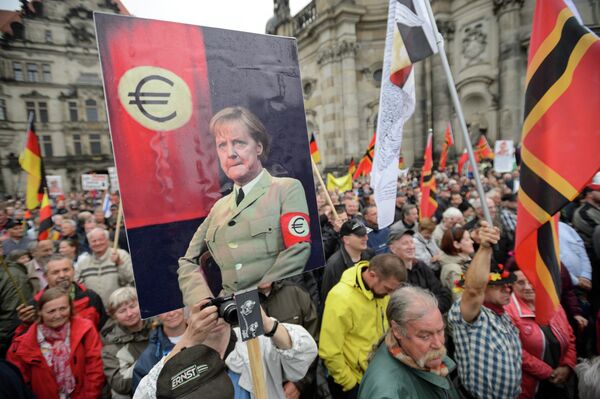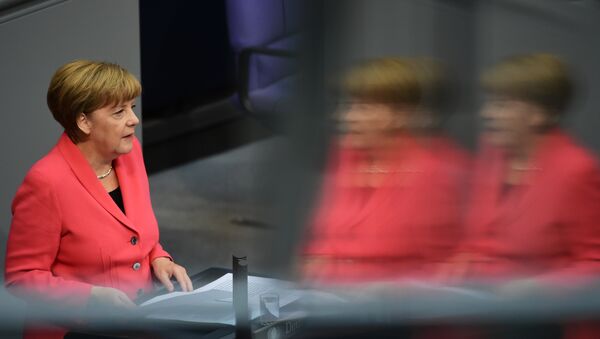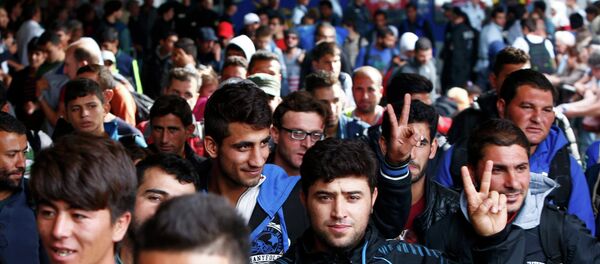Meanwhile, the powerful Governor of Bavaria — which has borne the brunt of the migration crisis — Horst Seehofer, has threatened to file a complaint against Merkel at the Federal Constitutional Court over her refusal to set an upper limit on the number of refugees the country can take in, arguing that it violates the constitutionally guaranteed independence of German states.
— Nepareizais (@Nepareizais) October 9, 2015
If Horst Seehofer continues down his current path he turns the CSU into a Bavarian national party.
— Henning Meyer (@hmeyer78) October 9, 2015
The threat is significant as Seehofer's CSU party is part of Merkel's Christian Democratic Union coalition and four of her cabinet members are from the CSU.
The latest opinion poll for the Berliner Zeitung showed that only 39 percent supported her approach. Officials say that up to 800,000 people may apply for asylum in Germany this year, but other estimates suggest the figure could rise as high as 1.5 million — mostly from war-ravaged countries like Syria, Turkey and Afghanistan.
Merkel's personal popularity has plummeted since the start of the crisis and there have been frequent demonstrations on the streets — most recently in Dresden where around 9,000 members of the anti-migrant movement PEGIDA to rally against the country's plans to take in people fleeing war and poverty in the Middle East and Africa.

There have also been arson attacks on asylum shelters across Germany as it struggled to deal with the massive influx of migrants and refugees. Her own Interior Minister Thomas de Maiziere said:
"Our capabilities are limited."
Divided Nation
Merkel has been passionate about defending refugees, telling European Parliament lawmakers of her own youth spent living in the former East Germany.
"I lived behind a fence for long enough. You can maybe delay things for a couple of years."
"Even the fine East German wall eventually fell. So Europe will not be transformed into a fortress. It simply won't work," she said.
Meanwhile, Merkel told interior ministers there were no plans to raise taxes to deal with the influx of migrants and refugees. "We can be pleased that we have been well managed for years and that our economic situation is currently good," she said in a statement released to the media.
Across the Atlantic, billionaire Republican Party presidential candidate hopeful, the quaintly coiffed Donald Trump described Merkel's refugee policy as "crazy". He told CBS:
"I've always thought Merkel was a great leader but it [her policy] is crazy. It's crazy!"
Despite her outward optimism, her popularity is sliding in the opinion polls and her strained relationship with the likes of Bavarian Governor Seehofer has put Germany on the brink of a political crisis.



